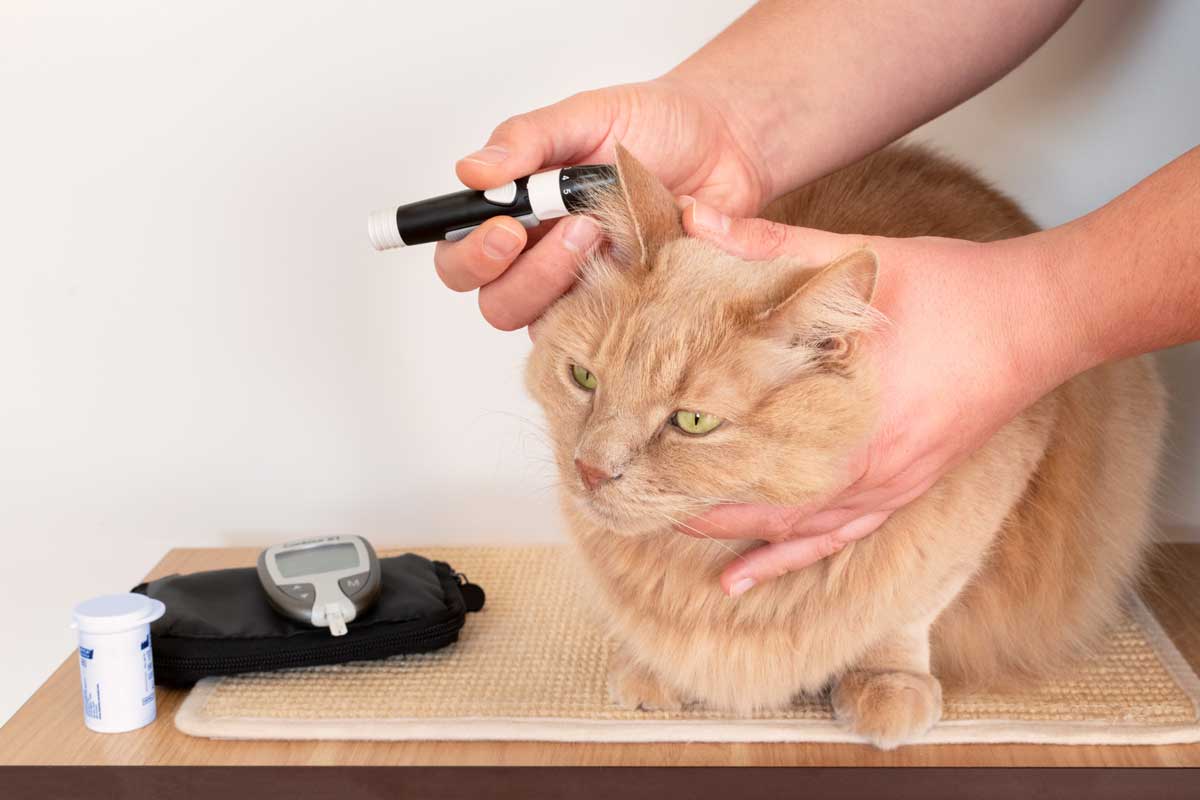Things to Know About Pet Diabetes
It is important to understand the signs and symptoms of diabetes in dogs and cats, as this is not uncommon in pets who are growing older or may have been treated improperly. If left untreated, diabetes can lead to cataracts, increasing weakness in the legs (neuropathy), malnutrition, ketoacidosis, dehydration and death. Diabetes mainly affects middle age and older dogs and cats, but there are juvenile cases, so it’s important to know what to look for and to always keep on top of your beautiful pets’ health. Kirrawee Vet Hospital is always here to help you and your beloved, so we’ve laid out some common symptoms of diabetes, the possible cause and treatments of pet diabetes. If you have noticed one of these symptoms or you’re worried that your pet may have diabetes, please do not hesitate to call us today.
Symptoms of Pet Diabetes
Diabetic dog symptoms include excessive water drinking, weight loss, increased or decreased appetite, cloudy eyes and chronic or recurring infections, including skin infections. The same is said for cats, however cloudy eyes is a more common sign in your pooch.
So, do dogs with diabetes suffer? If you’ve noticed some dog diabetes symptoms like panting or loss of appetite, this can actually turn into something painful or uncomfortable for your pet. This is why it is imperative to contact your reliable veterinary clinic as soon as you can, so you can get started on the right treatment and care plans and ensure the longevity of your family’s BFF.
Causes of Pet Diabetes
Like humans, diabetes in cats and dogs results from their bodies not producing enough insulin or not being able to properly respond to the insulin. This lack of insulin leads to a spike in glucose in the blood. Some causes can also be linked to a genetic predisposition, a stressful event like heart disease and infection, pregnancy and age. These increase an animal's diabetes risk, which can occur at any point in a pet's life.
Treatments for Pet Diabetes
Treating dog diabetes without insulin is a common desire for pet owners, however, veterinary clinics do not often advise this. Dogs with diabetes typically require two daily insulin injections, as well as a dietary change. They can go a day or two without insulin, but the treatment should be worked into your daily routine. To ensure the peak physical health and mental wellbeing of your dog or cat, make sure that you speak to your local vet clinic.
Contact Your Local Vet Clinic
If you are worried about diabetic dog symptoms, when to put a diabetic dog down, how to properly treat your diabetic cat or the long term health risks something like diabetes can have on your pet, please contact your trusted local veterinarians at Kirrawee Vet Hospital.

